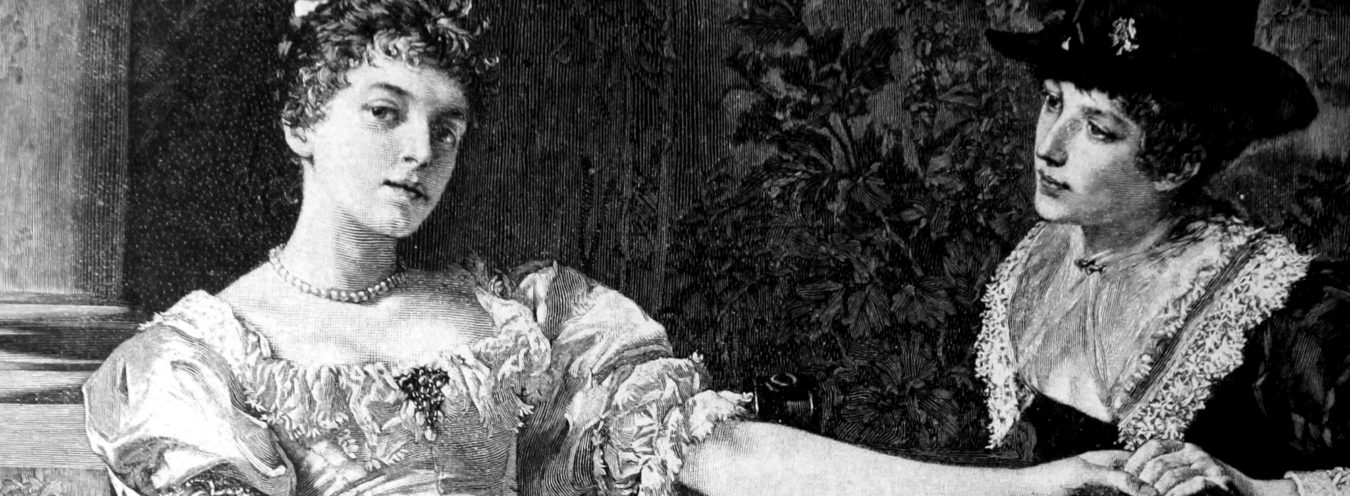
Łęcka, Izabela
Izabela was an uncommonly pretty woman. Everything about her was original and perfect. More than average in height, a very shapely figure, copious blonde hair with an ash tint, a straight nose, a somewhat supercilious mouth, pearly teeth, ideal hands and feet. (34)
Izabela Łęcka, the object of the main character’s affection, is endowed by Prus with model features of a desirable maiden from a respectable family on the marriage market: great beauty, appropriate social position (old nobility, aspiring to the title of Baron), and dowry (though, which was kept as a secret, it was almost completely depleted just like many other aristocratic fortunes). She has also received education appropriate for her social position: minimal knowledge, studied manners, and the conviction of her upper-class superiority over the masses, which are perceived as both strange and terrifying. Thus in The Doll, Izabela is represented as isolated from brutal reality with an impenetrable veil of illusions, composed of fragments of romanticised stories, literary fantasies and dreams. She reminds of a beautiful doll, and hence the title of the novel has been read in a twofold way: either as a reference to Izabela or to the actual doll over which litigation is carried out.
The character of Izabela embodies features most poignantly criticised by Prus: a complete lack of usefulness in the social organism, the exploitation of other people’s work, the slavish following of fashion and conventions. Appearing in new gowns, surrounding herself with appropriately positioned suitors and displaying her knowledge of artists (Rossi, Molinari) are the meaning of her life as constructed by Prus.
Divorced from the common world, Izabela does not feel affection for a real person, but she caresses and kisses a beautiful sculpture of Apollo instead. In her imagination, he resembles a general (somewhat younger), who had won a battle and gazed upon the deaths of thousands of warriors or a celebrated tenor, to whom women threw flowers and whose carriage had been unharnessed by a crowd.
Miss Izabela displays intellectual curiosity. She reads poetry of her remote cousin Zygmunt Krasiński, and she knows his play Un-Divine Comedy. She has read A Page of Love, the latest novel by Emile Zola, and on her table lie Shakespeare’s and Dante’s works, albums, and a French fashion magazine. Sometimes, for a change, she takes up a prayer-book and looks for the Acte de resignation (Act of Surrender). She cares for the poor through charity and is convinced that people in her class live only for leisure. They party, go to the theatre, socialise in their parlours. She knows that a different world exists with farmers, flower women, and messengers. She finds it attractive as well; it resembles a puppet theatre: it was even more charming than paintings of low life, for it moved and changed. Convinced that Nature was staging a splendid spectacle for her, Izabela views the world with light condescension, which also covers children, little angels sent from Heaven so that their elders could arrange Kinderballs.
This vain and egoistic woman, a disgrace in the world of values advocated by Prus, drives the twists in the action of the novel. She leads Wokulski to his demise: because of his fatal attraction to her Wokulski’s company goes down, and his well-prospering shop is sold to strangers. Izabela also fails in her own life. She does not dream about true love, For love – not the wild love poets dream of, but genuine Christian love – appears only after the Sacrament, and it is quite enough if the wife knows how to behave prettily at home, and if the husband accompanies her ceremonially into society. When she is reasonably already determined to marry, there are no more suitors, and Prus comments on her decision to go into a convent with the words of Doctor Szuman: does she intend to flirt with the Almighty Himself, or merely to relax after all this excitement, so as to get married with a firmer step?


